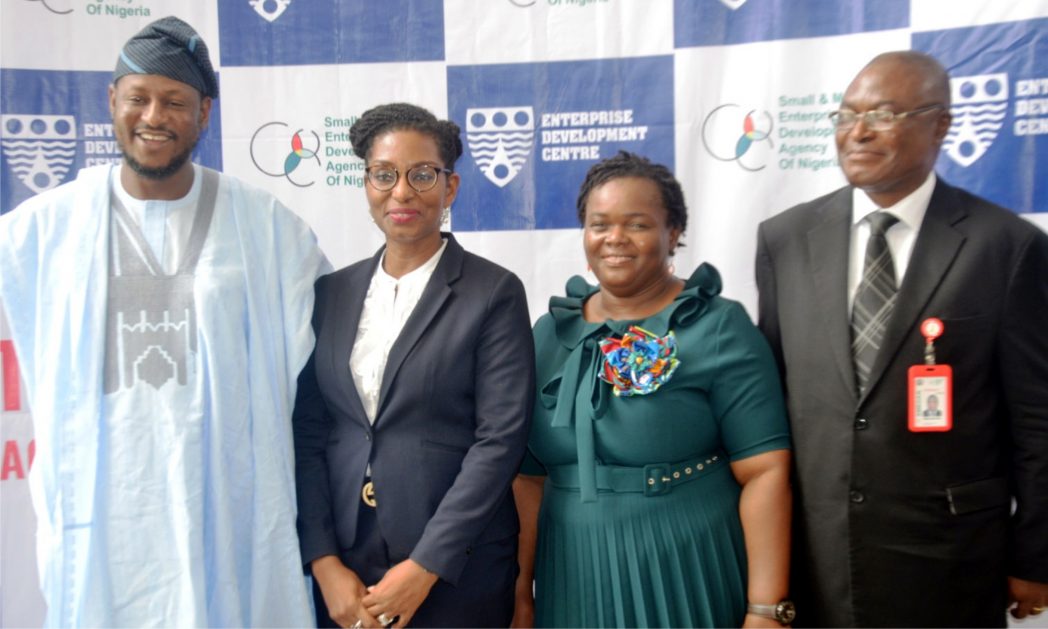Business
‘200,000 Wealthy Nigerians, Biggest Tax Evaders’

A former Director General, Budget Office, Mr Bode Agusto, has said 200,000 wealthy Nigerians are the biggest tax evaders in the country.
Agusto stated this last Tuesday at the 17th Annual Aret Adams Memorial Lecture in Lagos, with the theme, ‘Nigeria’s economy after oil: How prepared are we?’
He said there was a need to increase non-oil tax revenues in the country, adding that non-oil taxes collected by all tiers of government in Nigeria averaged four per cent of national income in the past five years.
He said, “In Angola, it was eight per cent; Ghana, 16 per cent; Kenya, 18 per cent; South Africa, 24 per cent, and in the OECD countries, 32 per cent. The World Bank says a nation cannot grow meaningfully if tax revenue is less than 15 per cent of national income.
“Why is Nigeria generating significantly lower tax revenues than other key economies in sub-Saharan Africa? In my opinion, it is largely due to poor tax compliance in Nigeria.
“What if Nigeria were able to increase non-oil tax revenue to 15 per cent of national income? This means that Nigeria will generate an additional N14.4 trillion in revenues every year.”
Agusto said it also meant that total government revenue would be 20 per cent of national income or N28.8 trillon per annum compared to the current figure of N10.4 trillion.
He said to raise the level of non-oil tax revenue, the government should focus on Personal Income Tax, Value Added Tax and Companies’ Income Tax, and make tax laws simpler.
He said the government should show willingness to enforce tax laws, adding, “I believe the government should focus on PIT, forgive all past sins and thus look forward and not backwards.
“The next step is for Mr President to make his PIT returns public annually, then make it obligatory for all those want to work for him to do the same. He should then look at all of us in the face and say, ‘Woe betides you if you don’t comply going forward!
“The biggest culprits with respect to tax evasion are the wealthy 0.1 percent of the population (or 200,000 individuals) who ought to self-assess themselves to tax but fail to do so. The focus should be on them, not businesses and those in employment who are already largely compliant.
Business
Agency Gives Insight Into Its Inspection, Monitoring Operations

Business
BVN Enrolments Rise 6% To 67.8m In 2025 — NIBSS

The Nigeria Inter-Bank Settlement System (NIBSS) has said that Bank Verification Number (BVN) enrolments rose by 6.8 per cent year-on-year to 67.8 million as at December 2025, up from 63.5 million recorded in the corresponding period of 2024.
In a statement published on its website, NIBSS attributed the growth to stronger policy enforcement by the Central Bank of Nigeria (CBN) and the expansion of diaspora enrolment initiatives.
NIBSS noted that the expansion reinforces the BVN system’s central role in Nigeria’s financial inclusion drive and digital identity framework.
Another major driver, the statement said, was the rollout of the Non-Resident Bank Verification Number (NRBVN) initiative, which allows Nigerians in the diaspora to obtain a BVN remotely without physical presence in the country.
A five-year analysis by NIBSS showed consistent growth in BVN enrolments, rising from 51.9 million in 2021 to 56.0 million in 2022, 60.1 million in 2023, 63.5 million in 2024 and 67.8 million by December 2025. The steady increase reflects stronger compliance with biometric identity requirements and improved coverage of the national banking identity system.
However, NIBSS noted that BVN enrolments still lag the total number of active bank accounts, which exceeded 320 million as of March 2025.
The gap, it explained, is largely due to multiple bank accounts linked to single BVNs, as well as customers yet to complete enrolment, despite the progress recorded.
Business
AFAN Unveils Plans To Boost Food Production In 2026
-

 News5 days ago
News5 days ago2026 Budget: FG Allocates N12.78bn For Census, NPC Vehicles
-

 Sports5 days ago
Sports5 days agoAFCON: Osimhen, Lookman Threaten Algeria’s Record
-

 Politics5 days ago
Politics5 days agoWike’s LGAs Tour Violates Electoral Laws — Sara-Igbe
-

 Politics5 days ago
Politics5 days agoRivers Political Crisis: PANDEF Urges Restraint, Mutual Forbearance
-

 Sports5 days ago
Sports5 days agoPalace ready To Sell Guehi For Right Price
-

 Sports5 days ago
Sports5 days agoArsenal must win trophies to leave legacy – Arteta
-

 Sports5 days ago
Sports5 days agoTottenham Captain Criticises Club’s Hierarchy
-

 Sports5 days ago
Sports5 days agoNPFL To Settle Feud between Remo Stars, Ikorodu City

